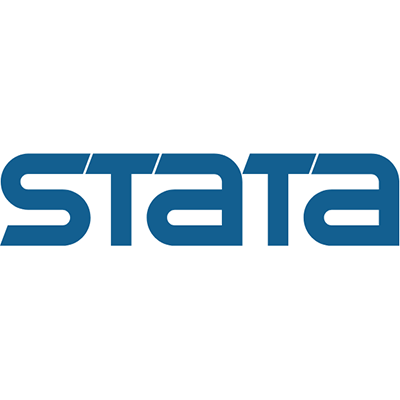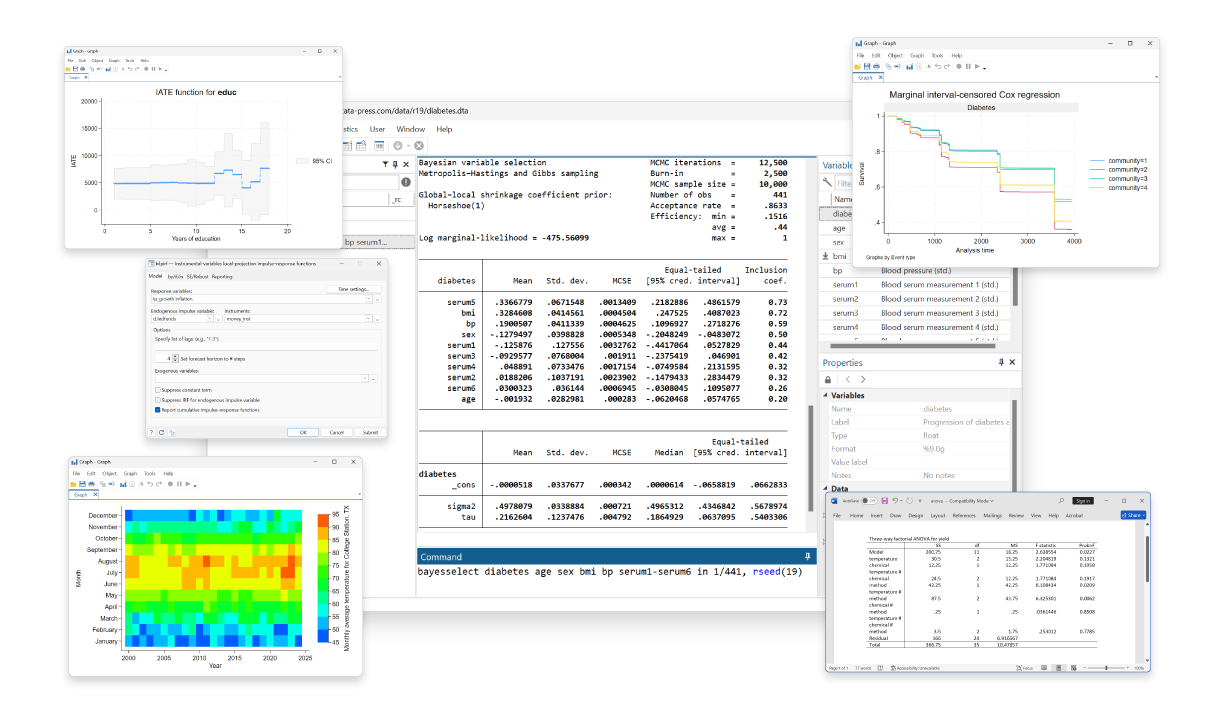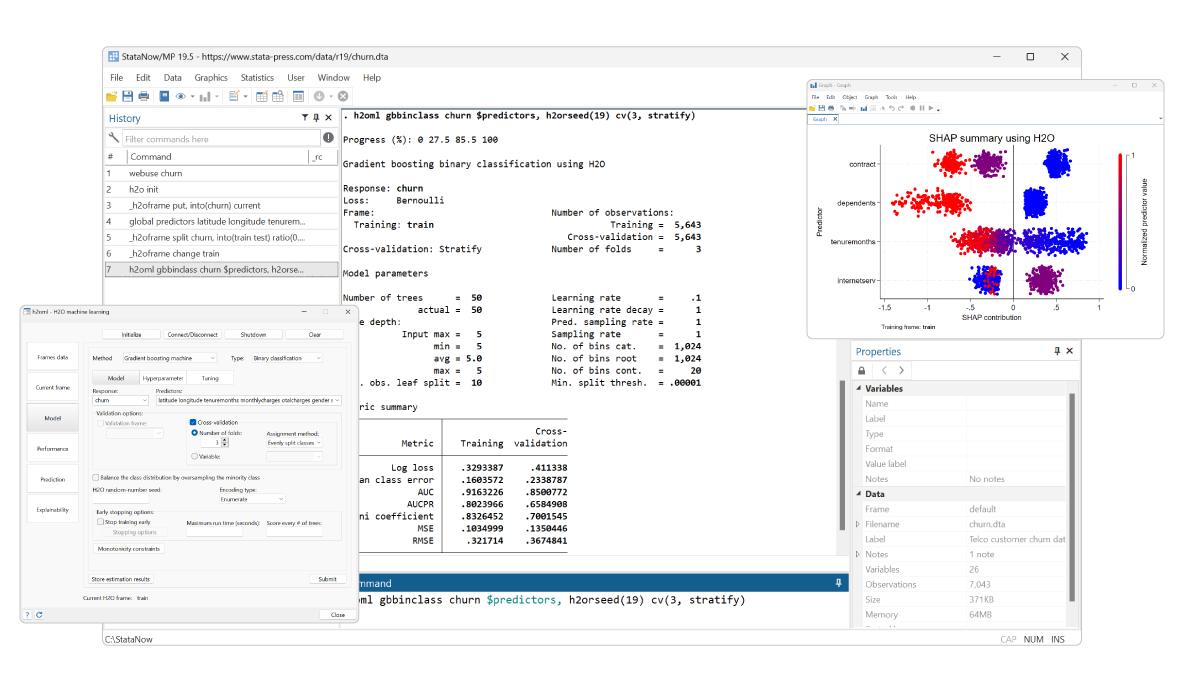Stata 19.5 for Windows, macOS, and Linux
$ 200.00
Stata 19.5 is the latest version of the powerful statistical software trusted worldwide for biomedicine, healthcare, and life sciences research. With advanced data analysis, machine learning tools, and user-friendly workflows, Stata helps researchers and professionals achieve accurate, reproducible results. Perfect for epidemiology, clinical trials, and biomedical data management, this edition offers speed, reliability, and continuous updates through StataNow…
Description
Stata 19.5 – Advanced Statistical Software for Biomedicine, Healthcare & Life Sciences
Stata 19.5 is the newest release of the world-renowned statistical software, designed to meet the complex needs of researchers, data analysts, and professionals in biomedicine, epidemiology, clinical trials, public health, and life sciences. With its user-friendly interface, powerful statistical methods, and highly optimized performance, Stata 19.5 allows you to turn raw data into meaningful insights—faster, more accurately, and more reproducibly than ever before.
Whether you are analyzing patient outcomes, conducting large-scale epidemiological studies, managing genomic data, or preparing clinical trial reports, Stata 19.5 delivers the tools you need. This release introduces new statistical commands, improved causal inference methods, Bayesian enhancements, advanced graphics, and bug fixes that make research more efficient and reliable.
🌟 What’s New in Stata 19.5
1. Power Analysis for Logistic Regression
Plan biomedical studies with precision using the power logistic command. This new feature lets you calculate sample size, effect size, or statistical power for binary outcomes (e.g., treatment vs. placebo, disease vs. no disease). Tabular and graphical outputs make study design easier for researchers and clinical trialists.
2. Enhanced Causal Inference Tools
Causal research is central to medical science. Stata 19.5 introduces Conditional Average Treatment Effects (CATE) and Local Average Treatment Effects (LATE), expanding the possibilities for robust treatment effect estimation in observational studies. These tools help ensure your findings are scientifically valid and ready for publication.
3. High-Dimensional Fixed Effects & Correlated Random Effects
Analyze panel and longitudinal data more effectively with High-Dimensional Fixed Effects (HDFE) and Correlated Random Effects (CRE). These models allow researchers to control for unobserved heterogeneity, making large-scale health studies and longitudinal biomedical datasets more accurate.
4. Bayesian Modeling Enhancements
Stata 19.5 takes Bayesian inference to a new level. It now supports Bayesian quantile regression, Bayesian variable selection, and new prior distributions like Half-Cauchy and Rayleigh. Posterior prediction has also been improved, making Bayesian methods more flexible and efficient for biomedical research.
5. Survival & Time-to-Event Models
For clinical and biomedical research, survival analysis is critical. Stata 19.5 introduces marginal Cox models for interval-censored and multiple-event data. The survival plots have been enhanced with more flexible options, improved at-risk tables, and graphical customizations.
6. Machine Learning with H2O Integration
Harness the power of machine learning inside Stata with H2O ensemble tree methods. These models are perfect for predictive medicine, diagnostics, and biomedical risk scoring, providing scalable solutions for large datasets.
7. Graphics, Visualization & Reporting Improvements
-
New heat maps for biomedical data visualization.
-
Bar graphs with confidence intervals for clearer comparisons.
-
Extended color schemes and graphing controls.
-
Smarter tables and reporting tools for easier export to Word, Excel, and PDF.
8. Do-File Editor & Workflow Productivity
-
Autocompletion, code folding, and customizable templates.
-
A history ribbon to track changes to scripts.
-
Temporary bookmarks for navigating large analysis scripts.
-
Enhanced PyStata integration with Python for streamlined workflows.
⚙️ System Requirements
To run Stata 19.5, ensure your computer meets the following requirements:
Windows
-
OS: Windows 10 or 11 (64-bit); Windows Server 2012R2, 2016, 2019, or 2022
-
Processor: Intel/AMD Core i3 or better; multi-core recommended
-
Memory: 1 GB (BE), 2 GB (SE), 4 GB+ (MP recommended for big data)
-
Disk Space: ~4 GB free space
macOS
-
OS: macOS 10.13 (High Sierra) through macOS 15 (Sequoia)
-
Compatible with both Intel and Apple Silicon Macs (native support on M-series chips requires macOS 11 or later)
Linux
-
OS: Any modern 64-bit distribution
-
Libraries: glibc 2.28+, libcurl4
-
Graphics: 16- or 24-bit color display required
🐛 Bug Fixes & Performance Enhancements
With StataNow continuous updates, Stata 19.5 not only introduces new features but also resolves known issues and improves overall stability. Some highlights include:
-
Numerical Stability: Improved algorithms in estimation procedures (matrix operations, gmm, nl, reshape).
-
Graphical Fixes: More accurate labeling, improved rendering of survival and Cox model outputs.
-
Memory & Speed: Better memory management for large datasets; optimized multi-core support in Stata/MP.
-
Interface Reliability: Auto-save in Do-file Editor, improved Python integration, and fewer workflow interruptions.
✅ Why Choose Stata 19.5 for Biomedical Research?
-
Trusted by universities, hospitals, and research institutions worldwide.
-
Built-in causal inference tools essential for observational medical studies.
-
Advanced machine learning integration for predictive health analytics.
-
Bayesian methods tailored to biomedical applications.
-
Publication-ready graphics and reports with minimal effort.
-
Continuous updates via StataNow keep your software secure and up-to-date.
⭐⭐⭐⭐⭐
“As a biomedical data analyst and developer, I’ve worked with many statistical tools, but Stata 19.5 truly stands out as the most reliable and efficient software for biomedical research, clinical trials, and epidemiology studies. The new power logistic command has made study design much easier, and the expanded Bayesian modeling capabilities are a game changer for advanced analysis.
I especially appreciate the machine learning integration with H2O, which allows me to build predictive health models directly within Stata, without switching between platforms. The improved Do-file Editor, with features like code folding and history tracking, has boosted my productivity significantly.
From a technical perspective, Stata 19.5 runs smoothly across both Windows and macOS, and the performance on large biomedical datasets is impressive, especially in Stata/MP with multi-core support. The frequent StataNow updates ensure I always have the latest features and bug fixes, which is critical for reproducible research.
If you are a researcher, developer, or data scientist working in biomedicine, life sciences, or healthcare analytics, I highly recommend upgrading to Stata 19.5. It is not just software—it’s a complete, professional solution for data management, statistical modeling, and reproducible science.”







